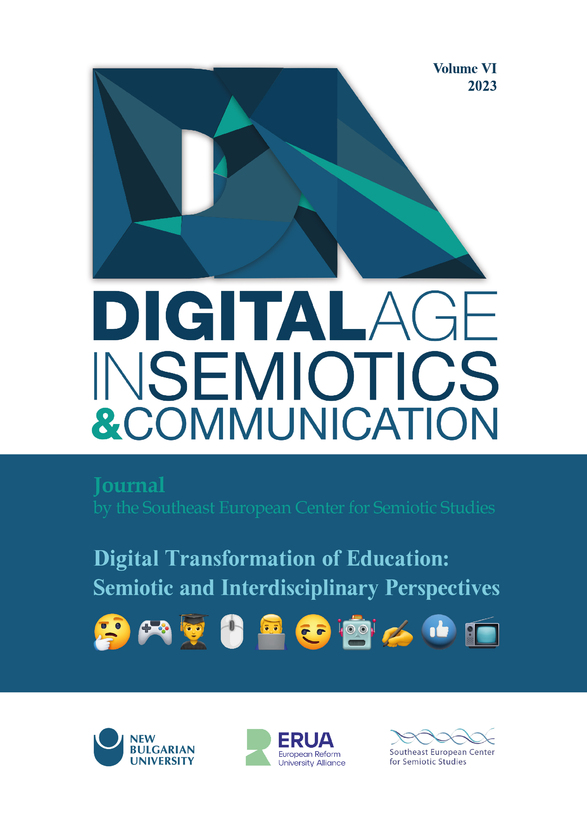
Digital Age in Semiotics & Communication, Vol. 6, 2023
Семиотика
Описание
Digital Age in Semiotics & Communication, a journal from the Southeast European Center for Semiotic Studies at the New Bulgarian University and founded by Prof. Kristian Bankov, explores the new forms of knowledge, social and linguistic interaction, and cultural phenomena generated by the advent of the Internet.
A topic is chosen for each issue by the editors’ board, but the topics will be always related to the issues of the digital environment. The topic is announced with a call for papers and will also be available on our Facebook page (facebook.com/DigitASCjournal)
The working language of the journal is English. It uses double-blind review, meaning that both the reviewer’s and the author’s identities are concealed from each other throughout the review process.
The purpose of the journal is to provide a collaborative work field for scholars interested in researching new phenomena in the dynamic digital world. Our main purpose is to build a scientific bridge between the fields of semiotics, communications, social sciences and the problems of the digital era. We believe that our collaborations can raise the level of understanding for modern digital phenomena, providing both a solid theoretical framework and profound applied research.
The pilot issue summarizes the whole research program of the Center and the journal in particular. It is open to various problems concerning developments in digital culture and phenomena. We are interested in working with scholars from different research and applied fields, such as semiotics (both applied and theoretical), communication studies, marketing and advertising, linguistics and literary studies, anthropology and ethnography, cognitive science and psychology, and computer science.
Editors for the current issue:
Kristian Bankov
Dilyana Molerova
Digital Age in Semiotics & Communication.
Volume VI, 2023: Digital Transformation of Education: Semiotic and Interdisciplinary Perspectives has been published in January, 2024
The digitization of education is a complex and comprehensive process which is difficult to fit into a single research effort. Therefore, our ambition with this issue of the journal is not comprehensiveness, but rather a combination of different disciplinary approaches. Our hope is to achieve a good example of collaboration which partially took place during the semiotics conference of the same title held in Sozopol at the beginning of September 2022. Digital culture as a subject of scientific research is interdisciplinary in its very essence, much more so than the pre-digital cultural types which preceded it. Its rise has put many of the established disciplinary divisions in crisis, as well as most educational institutions. Another characteristic of digital culture is its unprecedented dynamism. This is something which greatly reduces the “shelf life” of our theoretical models, generalizations and results of specific research, especially when considering that the epochal change happened within a generation. The positive side of this enormous complexity is that all research perspectives are now open and there are almost no established scientific hierarchies to stifle the research entrepreneurship of the digital natives.
ISSN (Print) 2603-3585
ISSN (Online) 2603-3593
